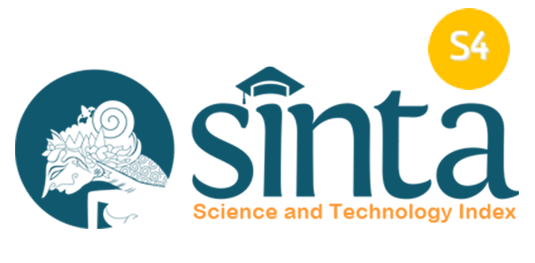Game based assessment in the mathematics classroom
Abstract
The objective of this paper is to present a conceptualization and creation of a game-based assessment to address student anxiety and accelerate students’ learning through the immediate feedback given in-game. We used a revised form of Computerized Adaptive Testing in order to adapt to the test-takers’ ability and knowledge level. We adapted the Computerized Adaptive Testing to design our game-based assessment. Our design is guided by the existing education literature about student learning and the context of the game is based on the current trend of popular culture among school-going age children. We propose a game which incorporates the features of the three types of assessment: assessment for learning, assessment of learning and assessment as learning. The structure of the game-based assessment allows students to proceed as a pace which is suitable for the individuals. Through the use of a technology enhanced game-based assessment, we hope to reduce students’ anxiety related to assessment, and that they are able to progress at a customized learning.
Keywords
Full Text:
PDFReferences
Benjamin, A. S., & Pashler, H. (2015). The value of standardized testing: A perspective from cognitive psychology. Policy Insights From the Behavioral and Brain Sciences, 2, 13-23.
Blazer, Ch. (2011). Unintended consequences of high-stakes testing. Research Services 1008.
Bloom, B. S., Engelhart, M. D., Furst, E. J., Hill, W. H., & Krathwohl, D. R. (1956). Taxonomy of educational objectives: The classification of educational goals. Handbook I: Cognitive domain. New York: David McKay Company.
Chu, Y. L. L., & Toh, T. L. (2020). A framework for designing mathematics instruction using comics at the primary school level. Journal of Research for Advances in Mathematics Education, 5 (3), 218 – 230.
Dugan, A. (2006). Assessing the Validity and Reliability of a Piagetian based Paper-Pencil Test. Unpublished paper.
Guthrie, R., & Carlin, A. (2004). Waking the dead: Using interactive technology to engage passive listeners in the classroom. Proceedings of the Tenth Americas Conference on Information Systems, New York, NY, August 2004.
Han, H.X.D., & Toh, T.L. (2019). Use of animation to facilitate students in acquiring problem-solving: From theory to practice. The Mathematics Enthusiast, 16(1), 1-16.
Meijer, R.R., Nering, M.L. (1999). Computerized adaptive testing: Overview and introduction. Applied Psychological Measurement, 23(3), 187–194.
Ruff, S.E. and Boes, S.R. (2014). The Sum of All Fears: The Effects of Math Anxiety on Math Achievement in Fifth Grade Students and the Implications for School Counselors. Georgia School Counselors Association Journal, 21(1), p. 1.
Ryan, R. M., & Deci, E. L. (2000). Self-determination theory and the facilitation of intrinsic motivation, social development, and well-being. American Psychologist, 55, 68–78.
Sireci, S. G. (2005). The most frequently unasked questions about testing. In R. P. Phelps (Ed.). Defending standardized testing (111–122). Mahwah, NJ, USA: Lawrence Erlbaum.
Toh, T.L., Cheng, L.P., Lim, L.H., & Lim, K.M. (2019). Shopaholics need mathematics too! Teacher and student perception of the use of comics to teach mathematics. Australian Mathematics Education Journal, 2019(1), 1-15.
Vulpo, M. (2017, August 14). Teen Choice Awards 2017 Winners: The Complete List. Retrieved from https://www.eonline.com/news/873075/teen-choice-awards-2017-winners-the-complete-list.
Yoshioka, S., & Ishitani, L. (2018). An Adaptive Test Analysis Based on Students’ Motivation. Informatics in Education,17(2), 381-404. doi:10.15388/infedu.2018.20.
DOI: https://doi.org/10.18860/ijtlm.v4i1.10251
Refbacks
- There are currently no refbacks.
Copyright (c) 2022 International Journal on Teaching and Learning Mathematics

This work is licensed under a Creative Commons Attribution-NonCommercial-ShareAlike 4.0 International License.
Indexed by :
.png)
.jpg)
.png)

.jpg)


